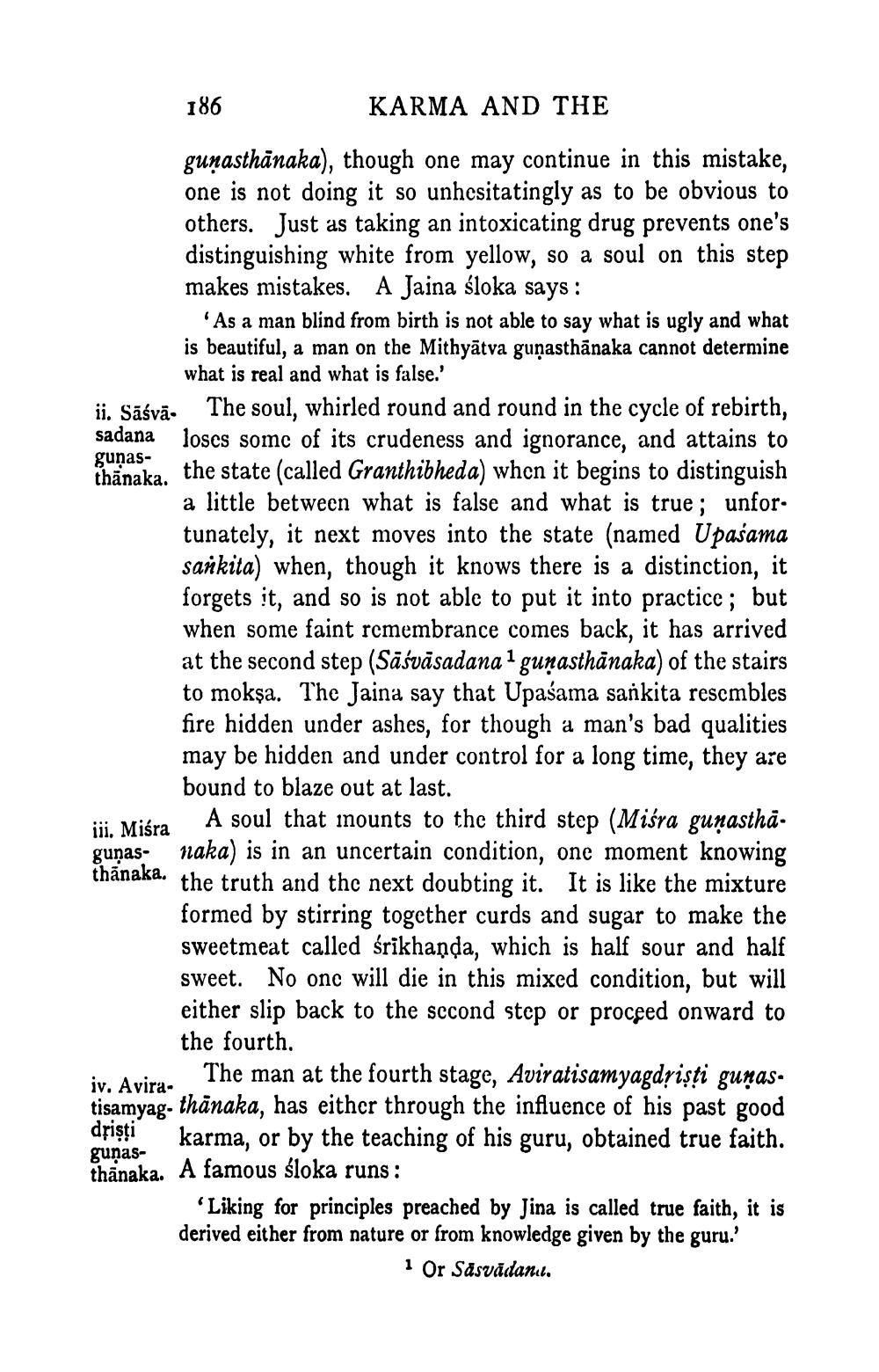________________
186
KARMA AND THE
gunasthānaka), though one may continue in this mistake, one is not doing it so unhesitatingly as to be obvious to others. Just as taking an intoxicating drug prevents one's distinguishing white from yellow, so a soul on this step makes mistakes. A Jaina śloka says:
As a man blind from birth is not able to say what is ugly and what is beautiful, a man on the Mithyātva gunasthānaka cannot determine
what is real and what is false.' ii. Sāśvā. The soul, whirled round and round in the cycle of rebirth, sadana loses some of its crudeness and ignorance, and attains to gunasbhänaka. the state (called Granthibheda) when it begins to distinguish
a little between what is false and what is true; unfortunately, it next moves into the state (named Upašama sankita) when, though it knows there is a distinction, it forgets it, and so is not able to put it into practice; but when some faint remembrance comes back, it has arrived at the second step (Sāśvāsadana1 gunasthānaka) of the stairs to mokşa. The Jaina say that Upasama sankita resembles fire hidden under ashes, for though a man's bad qualities may be hidden and under control for a long time, they are
bound to blaze out at last. i Misra A soul that inounts to the third step (Miśra guṇasthā. guņas. naka) is in an uncertain condition, one moment knowing thănaka.
the truth and the next doubting it. It is like the mixture formed by stirring together curds and sugar to make the sweetmeat called śrikhanda, which is half sour and half sweet. No one will die in this mixed condition, but will either slip back to the second step or proceed onward to
the fourth. iv. Avira
The man at the fourth stage, Aviratisamyagdrișți gunastisamyag. thānaka, has either through the influence of his past good dristi karma, or by the teaching of his guru, obtained true faith. thanaka. A famous śloka runs:
'Liking for principles preached by Jina is called true faith, it is derived either from nature or from knowledge given by the guru.'
1 Or Såsvādanı,
gunas




